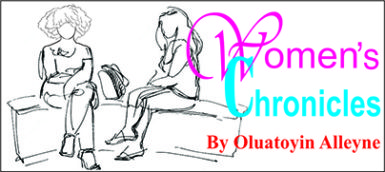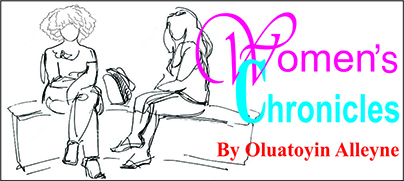
The ‘thing’ is HIV and for this 22-year-old mother of two hearing that she was positive was almost like a death sentence.
“Now I getting counselling and so but it is still hard and all I keep wondering is if people guh find out and if dem find out wah they would say. You know what it is just living in fear that somebody guh find out you have the virus?” she asked.
I said nothing, because I had no answer, but I looked at her; a petite, beautiful, young woman who should have been ready to conquer the world, but instead sat there broken, looking as if she was ready to give up.
“I didn’t suspect anything, you know, is just that when I was getting me last child I had to get a test and I didn’t frighten or anything because I never guess I had it. But is when they tell me I positive I coulda just fall down and dead. And what make it worse is that when the father do de test he was negative,” she said, the disbelief still evident in her voice.
The young mother and her partner are what is referred to as discordant couples, where one partner is HIV-infected and the other is not. Research has shown that both men and women can be the negative partner in the relationship.
Researchers are yet to fully understand why the virus is not transmitted between these partners, even when they fail to practice safe sex. But what they do know is that HIV discordance is related to a combination of factors that include genetics, HI-virus type, the extent to which the infection has progressed in the HIV-positive partner, other sexually transmitted diseases and circumcision — which research indicates may reduce the risk of HIV infection.
“And you know soon after he find out he negative is gone he gone and lef me,” the mother continued.
She agreed to speak me but declined for her name to be published.
“Who know, know but I don’t want broadcast it to the whole world. People can be so cruel in this life even you own family,” she said.
I knew exactly to what she referred as over the years I have witnessed persons being abandoned by their relatives when they learnt of their positive status.
“Right now, I just trying to live for my children but it hard because sometimes I feel I don’t have nuff years lef. You know what it is to have to drink tablets every day, every day! And then I have to be hiding it so that nobody find it. I live alone but is a lil house and other people live in the yard and they could just come in the house just so, so I does have to be hiding the tablets,” she said.
“And the tablets does make you feel so sick sometimes. Sometimes I don’t want to eat and when I eat I bring up. I does ask wah I really drinking the tablets for because it making me sick but the doctor keep telling me that it will get better and when I think about me children I drink it because I want to live.”
We sat in silence for a while and she stared into space.
“Look, it is not easy especially since he [her partner] lef me, he does give me money and so for the children, but it is not enough. And then he would still have sex with me sometimes. A really can’t really explain what is happening with us. But he living with somebody else and I know he only allowing me to live in the house because I don’t have nobody,” she said, confusion etched on her face.
“I only had sex with two persons before I meet he and I think I know is who give it to me, but I never went and ask. I don’t even know where he is right now and if I see he, I would not ask. At first is like I wish I coulda see he and just kill he or something but now I just trying to live me life.
“I just scare uh dying. I is just 22 and is like I feel I could dead anytime now. A know anybody could dead any time, but I get the virus that does kill people and so I does be thinking that I could dead any time and leh me tell you it is not a nice feeling.”
I asked her if she would feel better if she had a job.
“Maybe, but me ain’t get no education. Wah job I could get? I does do domestic work, but it don’t pay good and people does want take advantage of you. I does have to do it. But I wish I could get something better and for people to just treat me better,” she answered.
“I want a proper for house for me and me children to live, so you know we could get a better way of life. Some days I don’t feel good, but I does work hard. But you know the pay is not good and is not every day. I wish I could get some help, but I not begging. I would work but the work ain’t deh,” she said throwing her hands in the air.
“I have a job to do now, if you could call it that. I have to wash some clothes and clean a house but a getting money when a done so I have to go. Me children have to eat and go to school,” she said, signalling the end of our conversation.
As she said she is being counselled but that is far as it goes, her economic condition is dire and there seems to be no light at the end of the tunnel. There are many like her and some in more difficult circumstances and the question as to what assistance is really available to people like her remains unanswered. While there are claims that the prevalence of HIV has been reduced, over the years the suffering of those who are positive continue and too little is being done to assist them. The time for change is long overdue.






